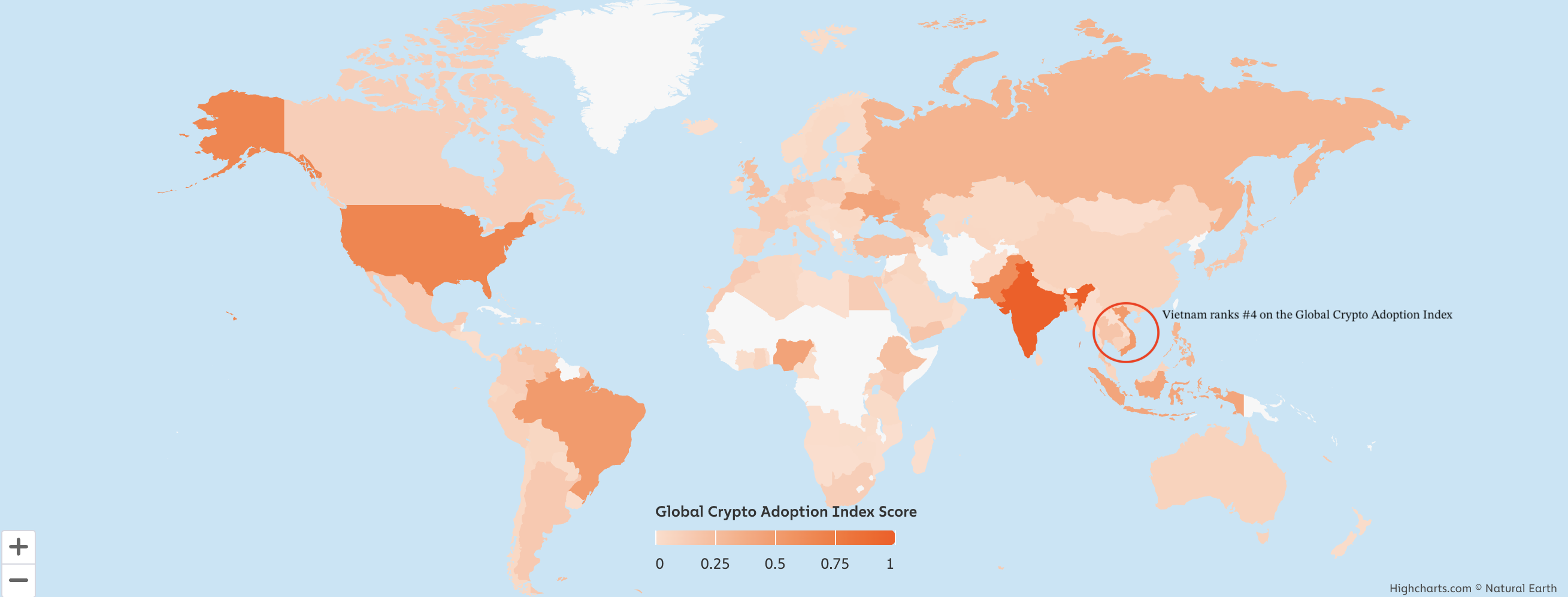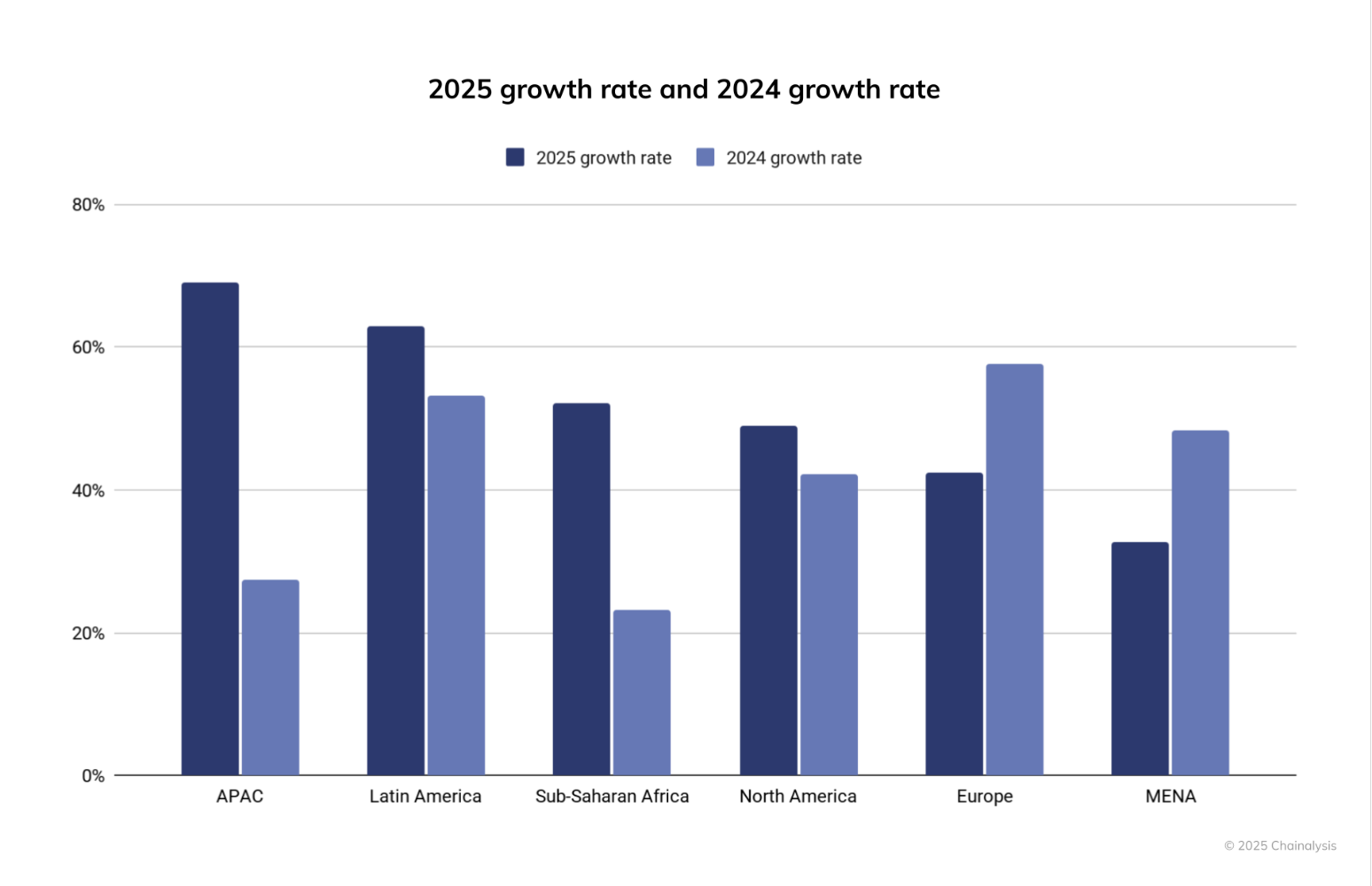
Vietnam ranks among the top nations for cryptocurrency adoption in the Asia-Pacific region, standing fourth globally according to Chainalysis.
The State Bank of Vietnam expects credit growth to hit about 20% in 2025, with this boost potentially enhancing liquidity in global crypto markets as adoption rises in the region.
Pham Thanh Ha, the Deputy Governor of the central bank, indicated on Friday that further reductions in interest rates are essential to stimulate economic growth and alleviate the uncertainties linked to U.S.-imposed tariffs. Vietnam’s government legalized cryptocurrencies in June as part of broader technology regulations that classified cryptocurrencies as either virtual assets or crypto assets like Bitcoin and Ether.
However, new regulations ban the issuance of on-chain fiat-backed assets, including stablecoins, as part of a five-year sandbox pilot program that commenced in September.
 Chainalysis Crypto Adoption
The global ranking of each country in the Chainalysis Crypto Adoption Index. Source: Chainalysis
Chainalysis Crypto Adoption
The global ranking of each country in the Chainalysis Crypto Adoption Index. Source: Chainalysis
Vietnam is emerging as a potential regional hub for cryptocurrencies in Southeast Asia, benefitting from its government’s emphasis on new technologies, a young population, and strong cryptocurrency adoption, as evidenced by its fourth position in the Chainalysis 2025 Global Crypto Adoption Index.
Asia-Pacific Leads in Crypto Adoption
The Asia-Pacific region is witnessing the fastest growth in cryptocurrency adoption, as reported by Chainalysis, with nine of the top twenty countries in its Global Crypto Adoption Index located within this region.
In 2025, the APAC area experienced a 69% annual increase in cryptocurrency value received, driven by escalating transaction volumes from $1.4 trillion to over $2.3 trillion, largely spurred on by strong adoption in India, Pakistan, and Vietnam.
 APAC Crypto Adoption
APAC leads all other regions in crypto adoption. Source: Chainalysis
APAC Crypto Adoption
APAC leads all other regions in crypto adoption. Source: Chainalysis
In July, Vietnam’s government implemented the NDAChain, a national blockchain database for identification and public records, establishing a regulated foundation for engagement with the digital economy and online platforms.
NDAChain is a layer-1 network managed through private-public collaborations, aiming to secure sensitive personal data typically found on centralized servers against cyber threats by distributing it across a semi-decentralized system.
This combines decentralized and permissioned approaches, according to Nguyen Huy, the head of technology for the National Data Association, which oversees NDAChain.


